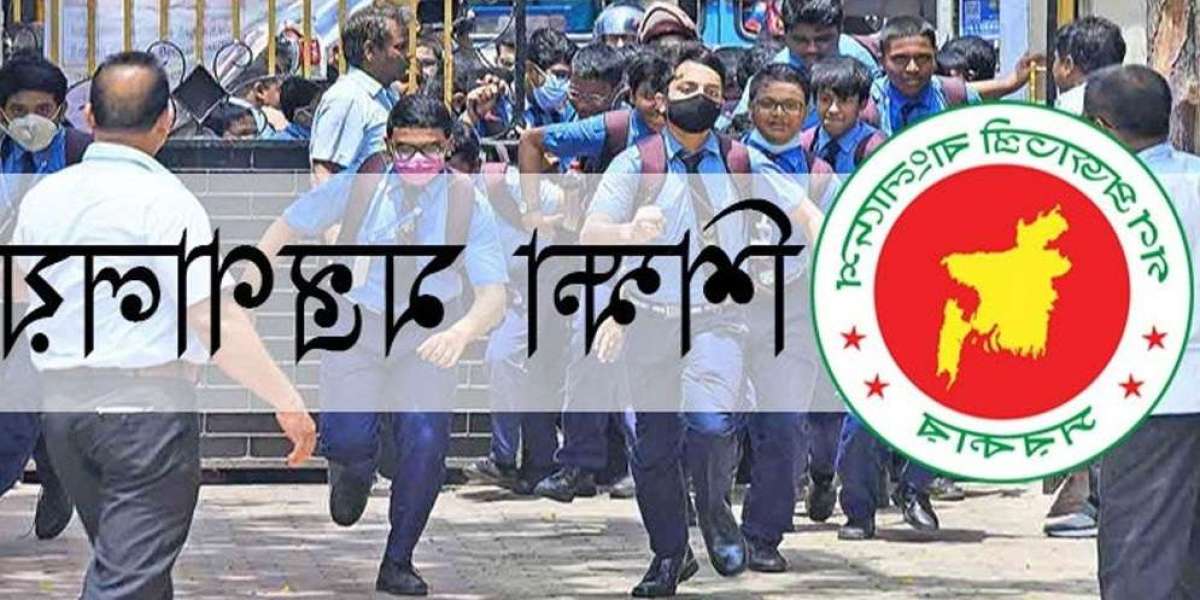There has been some relief in the stability of the economy, although not much, with various initiatives including the formation of a task force to reform the banking sector. The central bank has already stopped selling dollars amid a steady decline in reserves. As the foreign exchange reserves in the banks are somewhat normal, the 100% margin condition for opening LCs has been relaxed. However, traders are still not in a position to open LCs smoothly. However, food inflation is beyond the tolerable levels of common people. Not much has changed in controlling inflation. Besides, the new investment environment has not yet arrived. That is why new employment is not happening.
Today, the interim government completes two months sitting in the driving seat of the strained economy of the last three years. According to economists, the instability that has arisen in the face of the changing situation has not yet been resolved. According to them, it is not realistic to expect that everything will change or change in two months. In this context, the finance advisor said in a brief response. Salehuddin Ahmed told Jugantar on Sunday, "I am happy, very happy, with the two-month economic reform program." We have done all the work as per our target.
However, after taking responsibility Dr. Salehuddin Ahmed told reporters that the first task will be to restore order in the financial sector. In these two months, he has been able to carry out several reforms in this regard.
In the two months of the interim government, the bleeding in the economy has stopped a little, but how sustainable it will be, it is very uncertain - the former chief economist of the World Bank's Dhaka office said. Zahid Hossain. He further told Yugantar on Monday that the economy was in a state of tension for three years. Overall that situation still remains. In the last two months, the rate of inflation showed some signs of reduction, but it was not significant. Food inflation is not stopping, which is causing the common man to suffer the most. The ready-made garment sector is not fixed now. Not at ease in terms of security. Production is disrupted. A comfortable law and order situation has not yet developed in industrial areas. Apart from protests, incidents like vandalism are happening almost every day.
According to the Bangladesh Bureau of Statistics, food price inflation has dropped to 10.40 percent last September, decreasing by 96 percent. In the same month, overall price inflation has decreased slightly to 10.49 percent. The price of daily necessities in the market is increasing abnormally, making common people uncomfortable. Inflation shows no signs of abatement, and the government's attention is less.
Sources in the finance department said that the process of reducing the government's operating and development expenses to a reasonable level has already started to control inflation. Besides, steps have been taken to ensure the supply of required dollars for the import of fertilizer by farmers. Besides, the policy interest rate has been increased to 9 percent and the exchange rate of foreign currency has been market oriented to keep the exchange rate of rupee against the dollar stable. Besides, market monitoring is being increased. Duty has been reduced on some products including potato. Economist Dr. Zahid Hossain thinks that some policy initiatives have to be taken in macroeconomics to control inflation. Otherwise the situation would have worsened.
Debt defaults and money laundering have crippled the banking sector. According to Bangladesh Bank, at the end of last June, defaulted loans have increased to 2 lakh 11 thousand 391 crores. 12.56 percent of the loans disbursed from the country's banks have now defaulted. A large part of which has been smuggled abroad. According to the people concerned, about two lakh crore rupees have been smuggled out of the country. A task force has been formed to reform the banking sector including non-performing loans. Another task force has been formed to recover the money laundered.
Meanwhile, due to political unrest, the government's revenue collection in the first two months (July-August) of the current financial year has decreased by 11 percent compared to the previous financial year. During this time, the National Board of Revenue (NBR) has collected Tk 42 thousand 106 crore, which is about Tk 15 thousand 69 crore short compared to the target. However, after the change in the political situation, Bangladesh's exports increased by 16.27 percent in September. The flow of remittances has also increased.
The interim government came to power amid a steady decline in foreign exchange reserves. Various initiatives are taken to increase the reserve situation. In order to reduce the pressure on the reserves, a letter was sent to the governments of the respective countries requesting to reduce the interest rate and extend the repayment period of the loans due from Russia and China. Besides, within two months more attention has been paid to the collection of loans in foreign currency. An additional US$3 billion beyond the regular assistance target was formally requested from the International Monetary Fund (IMF). In addition, the World Bank was requested to give a loan of 100 million dollars and JICA a loan of 100 million dollars. However, pledges of USD 12 billion from various donor agencies are meeting. A senior official of the Economic Relations Department said that various initiatives are being taken to improve relations with all the development support organizations. Besides, initiatives are taken to utilize the foreign exchange reserves in the pipeline.
Several initiatives to reform the economy: A six-member 'Banking Sector Reform Task Force' has been formed headed by Central Bank Governor Ahsan H Mansoor. The task force will highlight the actual situation of the banking sector and make recommendations to protect the stability of the financial sector. Besides, a nine-member task force was reconstituted to recover money laundered abroad. The Governor of Bangladesh Bank will serve as its head. Besides, a committee of 12 members has been formed to publish a white paper to show the true picture of the existing economic condition of the country. The head of which is economist and Center for Policy Dialogue (CPD) Honorary Fellow Dr. Devapriya Bhattacharya. The National Board of Revenue (NBR) has constituted a seven-member task force to review the Income Tax Act 2023. Tax Commissioner Ikhtiyar Uddin Mohammad Mamun heads this task force. Besides, a task force of seven members has been formed on capital market reform.
Besides, a special task force has been formed from the Ministry of Commerce at the district level to monitor and review market conditions and supply chain to control commodity prices. The nine-member task force is headed by the Additional District Commissioner. It was decided to rationalize the tariff structure of essential commodities to control prices, to increase the single credit limit of traders. Besides, the economic benefit of black money is canceled. Permitting use of Kamalapur ICD as well as Pangaon Terminal to clear container congestion and facilitate clearance of goods brought to Dhaka to speed up trade.
Economist Zahid Hasan thinks that regarding the formation of task forces in some sectors including the banking sector, economy and bringing back money laundering, it is a matter of seeing how long it will take for the recommendations of these committees. Because, political parties are creating pressure for elections. There should be a time frame to take up reform activities. He said that short-term reforms should be identified and implemented quickly in the sectors which are urgently needed. Especially applicable to banking sector, revenue collection, government expenditure, power sector, business and commerce.



















































